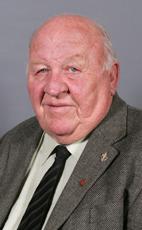Mr. Speaker, I listened to the member's speech and on a big majority of it, I would agree with him totally.
The Nunn report, for example, was one of the best reports we have received in this place for a long time. The only comment he made that I might question was his last comment about the capable members in the justice committee, but I will not go there.
I also spent 18 years in a junior high school as an administrator and I can relate to his brother who did the same thing. What his relative would say would agree with a lot that I have seen in changes over the years in how we deal with youth.
I also know that if I held a number of town hall meetings in communities or with people from my riding, I would hear very much the same things about which he has talked. Crime is a very important matter in the minds of many people.
I also agree, when we are talking about young offenders, we are probably talking about 5% or maybe less of the entire youth. The majority of our youth in this nation are great kids, and I experienced that over the many years that I was in the school.
At the same time, one thing disappeared out of the schools over a period of time and it disappeared shortly after the Young Offenders Act and the Charter of Rights came into being. Discipline became less and less of an important factor in our schools. I think lack of discipline in the homes and in the schools is something that could lead to further problems with young people. They must know the meaning of discipline. When I was young, I sure as the devil needed discipline and I am glad I got it, and sometimes in a pretty strong way.
Would the hon. member agree that discipline is not allowed any more under the rights? We cannot do certain things in schools that once upon a time we could do. I am not going back to the draconian age. I am talking about recent years, probably the years the member was growing up, where discipline was a pretty important factor. Does he not agree that the failure of those of us in positions of authority to discipline when necessary has led to some of our problems?

